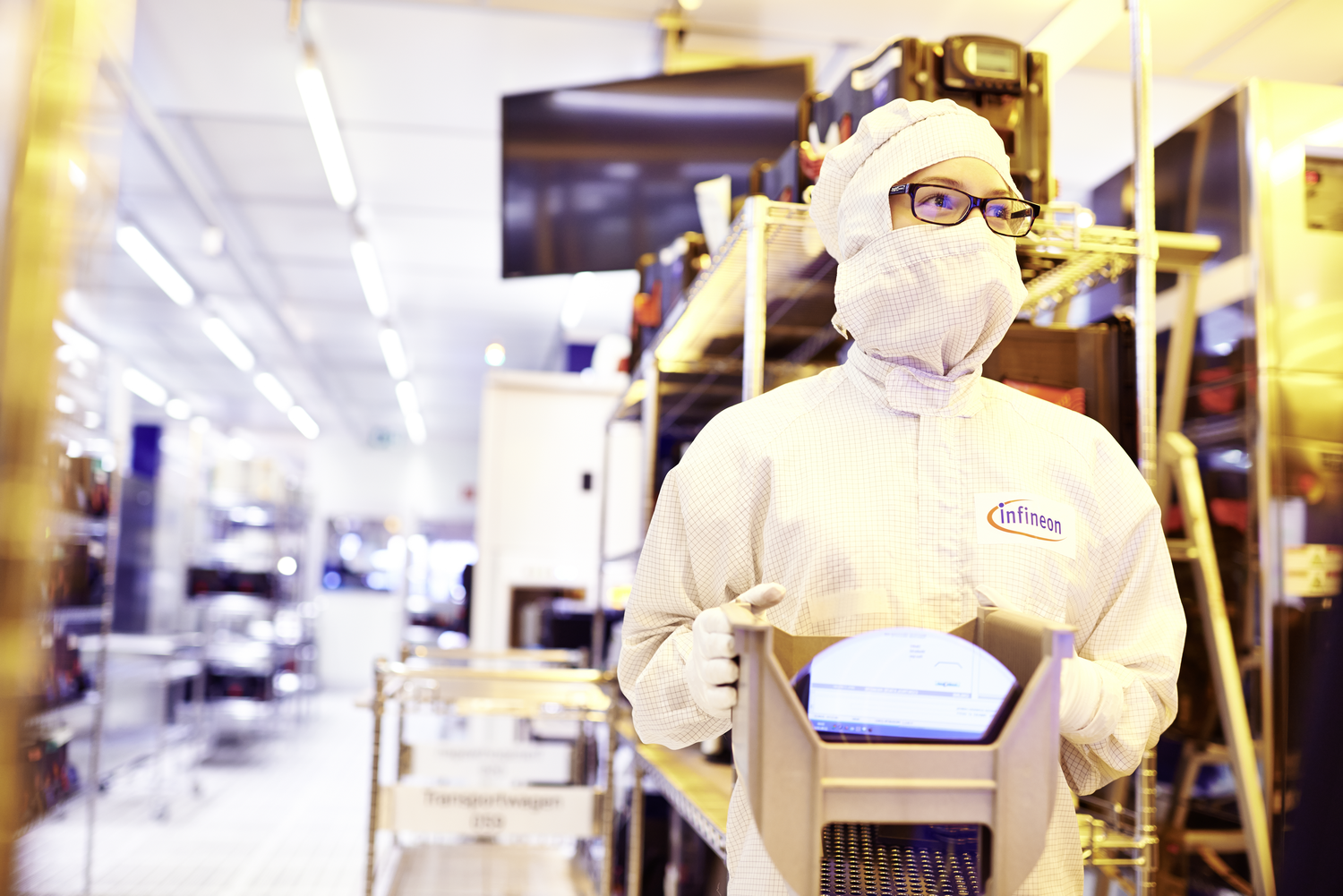
Automakers should expect more chips in the second half of the year but the overall squeeze on supply is likely to continue into 2022, according to one of the industry’s largest suppliers Infineon.
However, the Munich-headquartered company said it would only start to make up lost volume in 2022 and blamed supplier issues for not expanding chipmaking capacity fast enough.
“We predict that the imbalance between supply and demand will continue for a few quarters yet, with the risk that it lasts into 2022,” said Infineon CEO Reinhard Ploss in a virtual press conference on Tuesday.
Most carmakers have been forced to pause production at some point this year due to a lack of semiconductors. The shortage was caused by soaring demand for silicon-powered consumer electronics during the pandemic, while automakers cancelled orders for parts due to slumping sales. When car orders picked up at the end of 2020, manufacturers found themselves at the back of the queue with chip suppliers.
Infineon marketing director Helmut Gassel said that the chip shortage affected the production of around 2.5 million cars in the first quarter of 2021. Last week Ford said the shortage could cost the US automaker $2.5bn this year.
Infineon, which earns 45% of its revenue from selling chips to carmakers, pointed to “bottlenecks” from the companies it outsources chip manufacturing to.
How well do you really know your competitors?
Access the most comprehensive Company Profiles on the market, powered by GlobalData. Save hours of research. Gain competitive edge.

Thank you!
Your download email will arrive shortly
Not ready to buy yet? Download a free sample
We are confident about the unique quality of our Company Profiles. However, we want you to make the most beneficial decision for your business, so we offer a free sample that you can download by submitting the below form
By GlobalDataMost chips are based on the designs of companies such as Infineon or Arm but physically manufactured at foundries owned by other companies. Most of these are located in Taiwan, South Korea, the US and to a lesser extent China.
The global chip shortage was further compounded by a factory fire at Renesas in Japan – another key automotive chip supplier – and a cold snap closing Samsung and Infineon fabs in Austin, Texas, earlier this year.
Executives from other key chip players such as Intel, Nvidia and Taiwan Semiconductor Manufacturing Company (TSMC) have warned of a squeeze lasting into 2022 and possibly 2023.
While carmakers and consumer electronics companies are not competing for the same semiconductors, they are fighting over manufacturing capacity. Cars tend to use older microprocessors while smartphones and other personal devices use more advanced chips. According to GlobalData automotive analysts, “modern vehicles are as reliant on computer chips as they are on their engines and chassis.”
“Everyone is jostling to get more of them, whether it is for personal computers, mobile phones, automobiles, or what have you,” said Ploss. “We’re fighting for every wafer.”
In response to the crisis, chipmakers have pumped billions into expanding capacity, while chip designers are investing in their own manufacturing plants to become less dependent on chip contractors. Infineon plans to finish constructing a chip production site in Austria later this year.
This week Intel announced a $3.5bn upgrade to its New Mexico plant and earlier this year said it would create a new business dedicated to making chips based on other company’s designs.
Such is the demand for chips that TSMC is reportedly planning the construction of “up to five” additional fabs in Arizona, per Reuters sources. Last month the chipmaking juggernaut said it would invest $100bn over the next three years to increase production capacity.
In June 2019 Infineon acquired Cypress Semiconductor for $10.1bn, giving it a 13% share of the automotive chip market.
A Verdict analysis of recently published government figures showed that UK-based carmakers forced to halt or reduce production in recent months have been placing workers on Covid-19 furlough and claiming their wages from the Coronavirus Job Retention Scheme, raising the question of whether their struggles were directly attributable to the pandemic or due to the semiconductor shortage.




